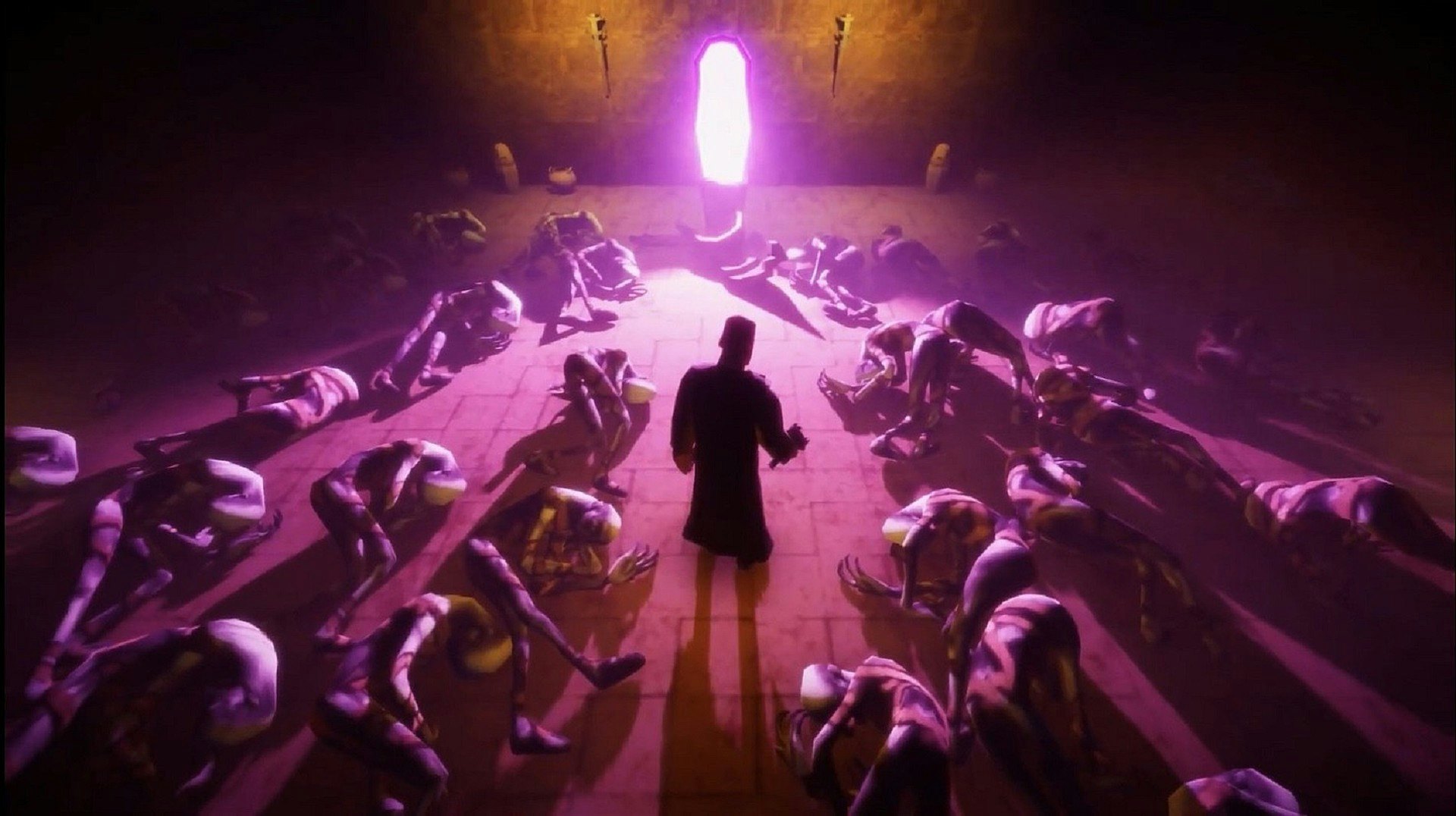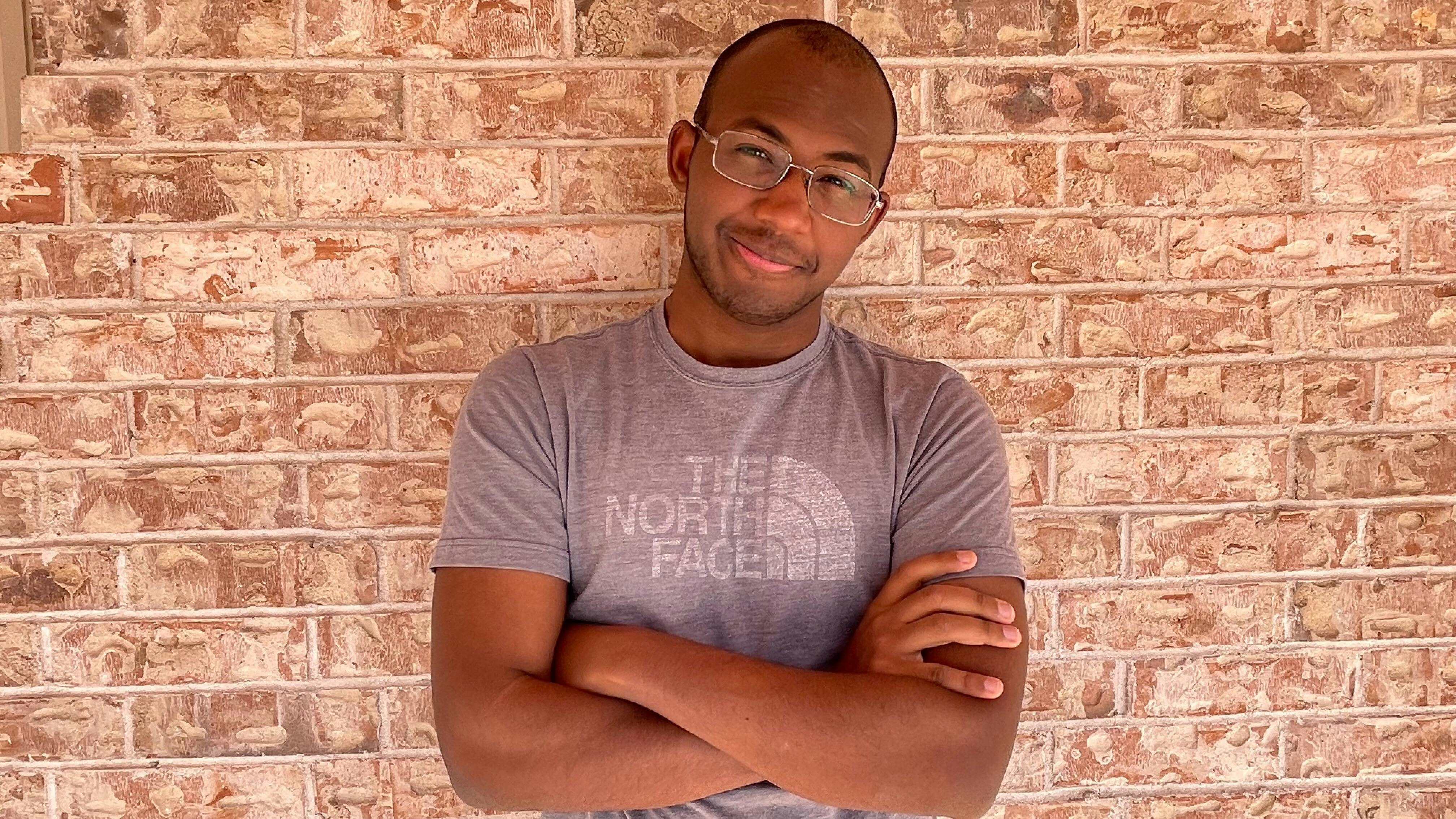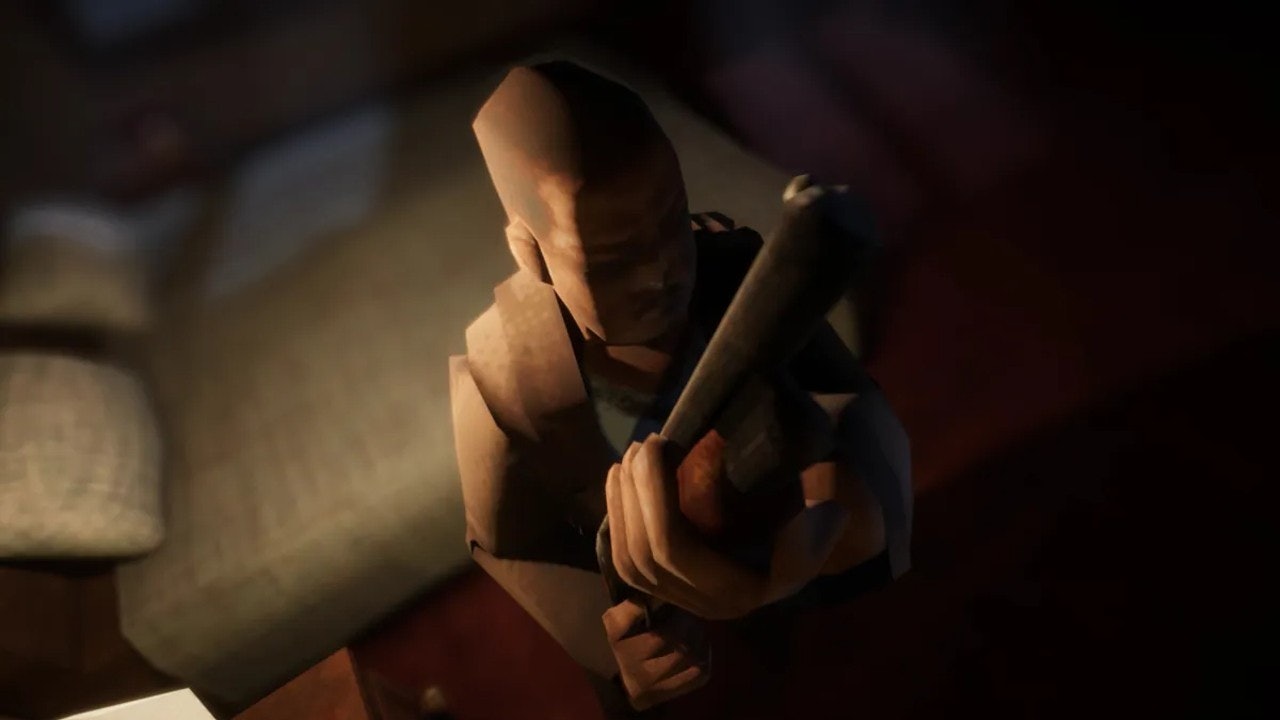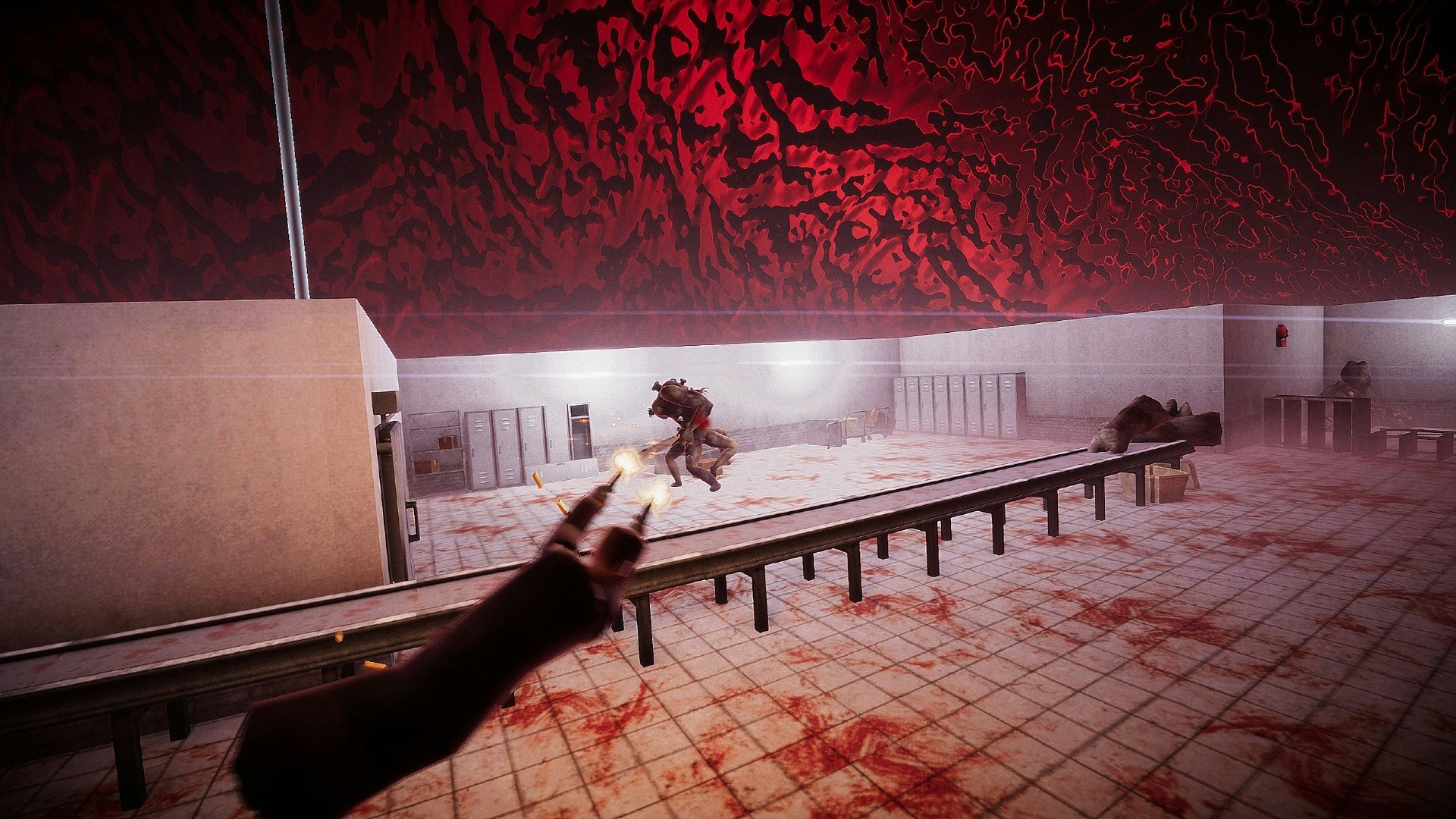
There’s a lot going on in El Paso, Elsewhere. It’s a psychedelic neo-noir shooter from Strange Scaffold, the studio behind viral hits like An Airport For Aliens Currently Run By Dogs and Space Warlord Organ Trading Simulator.
BAFTA-nominated studio head, game designer, and writer Xalavier Nelson has clearly taken Rockstar’s cop-turned-vigilante Max Payne series as a source of inspiration. But El Paso, Elsewhere is more than a spiritual successor — it’s a deeply personal experience that’s allowed Nelson to flex his creative muscles. In addition to leading development, he voices the main character and raps on the soundtrack.
“I've been in El Paso for about five or six years, which as a military brat is unprecedented in terms of time. I had a chance to leave, but I stayed because it was the first place that ever felt like home,” Nelson tells Inverse. “One reason for that is that it's a zone for the surreal that invites this strangely lonely and spiritual feeling with its very landscape.”
Inverse spoke with Nelson about El Paso, Elsewhere’s inspirations, ambitions, and the continuing lack of diversity that the industry struggles with.
The interview below has been edited for clarity and brevity.
Is there any personal significance to El Paso, Elsewhere’s setting?
Nelson: When we first arrived there, you're driving down this creek, this road called Trans Mountain. It was late at night and this image embedded itself in my head of a person who I knew instantly to be a vampire hunter, driving a beat-up car. Bruises on his face, a bloody lip, going a little bit slower than the speed limit, looking for a place to bury a body on the side of the mountain. Because in this universe, vampires don't just disappear when they've been “dusted,” or staked. Revealing and uncovering that story has been such a process. It has been utterly fascinating to have the growth of the game match the growth of the city itself.
About a year ago, there was a manufacturing error found with our streetlights. All of the streetlights in the city have been turning purple. And because we've already bought so many of these street lights, gradually more and more of the city at night has been turning purple. It’s literally turning into a neo-noir showcase.

How does El Paso, Elsewhere tackle substance abuse?
Nelson: El Paso, Elsewhere has this core piece of wording that we use throughout the game — “one-way trip”. It's this idea of inevitability. There's a ticking clock on our player character the moment the game begins. We’re reckoning with, how do we take a spiritual successor one step further than its foundation?
It's “haha, he's doing pills again”, but the type of pills that are going to kill you by the end of the night either way. So what matters is what you do with this final time, whether or not you can accomplish what you were trying to do in the first place.
The subject of this story is a person dealing with inevitability and mortality, and how that impacts everything from combat design to the way they think about themselves.
You’ve also talked about El Paso tackling relationship dynamics and trauma? How did you approach that?
Nelson: How we're dealing with relationship trauma in El Paso, Elsewhere is answering the question of how you represent a relationship where abuse has occurred, but none of it has been physical. No punches have been thrown.
Having a relationship with the Lord of the Vampires is going to fuck you up. How do we depict that, when you are a survivor of that abuse as a man, as a black man, stereotypically treated as an apex of masculinity that you have to uphold, or else even face criticism, and the complicated task of processing that, even as the person who went through it.
Just because you have endured pain often does not mean that you have lost love. The feeling doesn't go away, it evolves and has shading, but it doesn't go away. Treating that complexity of our subject material honestly and with nuance has been part of why this is the longest development cycle a Strange Scaffold game has ever had.
Living is pain. And one thing I'm proud to have done with this story is show that the scars are worth living with.

This industry doesn't afford as many opportunities to people of color as it should. How do you think that can improve?
Nelson: The key for diversity is not just bringing people into the room. It's allowing them to have deep structural, systemic impact on the things they're working on.
We see all these internships and “get girls to code” programs, and those are fantastic. But what happens when those little girls grow up, and they find no entry-level positions in the industry? Or they have to push through all these barriers on their own, and they find themselves in workplaces that aren't built for them, where they have no leadership that represents them? Where they have to advocate over and over again to leadership that does not reflect their same values, identity, or background?
If we want true change in terms of diversity in the industry, it has to come from the top down. When you have diverse leadership on projects, you're just among your own people, and there's knowledge that filters. For example, you enter a bathroom in a video game with a black protagonist, there's no sunscreen in there. Because — at least from my family — it’s like, no, we don't have to buy that.
Allowing truths to just be an organic piece of the creative process rather than another fight — when that filters into the team, magical things occur. I’m looking forward to a day when players get to joyfully witness what worlds they have been locked off from. Because every diverse character they've been offered, every black character they've been offered, was someone who had to come from the bottom up, rather than from the top down.

How do you think the industry can move toward more sustainable development, especially in the face of never-ending layoffs?
Nelson: Everyone is going for blockbusters, when the thing that has brought them the success they enjoy today has been development at different scales, with different player bases in mind, all of which are allowed to have room to impact the gaming landscape. When you strip away that space, you may make record sales, but you don't know how many players you suddenly lost outside of the one brilliant spotlight that you've shone like a laser on a single point.
We know it isn't a matter of revolutionizing video games. It's making small tweaks that make sense and have established precedents. We're acting against the long-term health of our medium. I hope we change our approach before it's too late.
El Paso, Elsewhere launches on September 26 for Xbox One, Xbox Series X|S, and PC. A demo is currently available on Steam.







